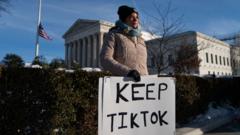Comparing a soda ban to COVID authoritarianism might make for a catchy tweet, but it’s intellectually dishonest — and dangerously misleading.
That’s the line that some right-wing influencers pushed recently to stir outrage over the commonsense proposal of removing sugary drinks from SNAP, the government’s food assistance program. They equated it to vaccine coercion, calling it “government overreach.”
But according to right-leaning journalist Nick Sortor, it appears that this wasn’t a grassroots outcry at all, but a manufactured backlash, apparently bankrolled by a shady public relations campaign.
Thankfully, people like conservative activist and former swimmer Riley Gaines saw through it.
Let’s be clear: No one is banning soda. Anyone can still buy it. The issue is whether taxpayers should have to subsidize it. Right now, they are doing so — heavily.
SNAP, which helps over 42 million Americans afford groceries, costs more than $100 billion a year. According to USDA and independent research, soft drinks consistently rank among the top individual items purchased with SNAP benefits.
While estimates vary, sugary drinks are believed to account for up to 10 percent of all SNAP beverage purchases. That’s billions in taxpayer dollars funneling to Big Soda.
No wonder they’re panicking.
The exclusion of sugary drinks from SNAP — alcohol and tobacco are already excluded — implies a financial hit. So it seems suspicious that a shadowy influencer campaign suddenly materialized, allegedly offering content creators up to $1,000 to post anti-reform talking points. Pictures of Donald Trump sipping Diet Coke suddenly spread on X like sacred scrolls.
Luckily, some refused to be played.
Gaines, the NCAA athlete-turned-advocate, said she was approached and declined. Instead of parroting the script, she asked questions. Who was behind this? Why the secrecy?
“Sad to see people sell out for really not that much money,” she wrote.
Her integrity earned her a public thank-you from Health and Human Services Secretary Robert F. Kennedy Jr., who is spearheading the soda reform effort.
And Eric Daugherty, a director with Florida’s Voice who was also approached, publicly acknowledged the veracity of Sortor’s theory. To his credit, he apologized for his participation in the campaign, a move that took courage.
As Gaines and Daugherty understand, this isn’t about party lines. It’s about principle, and it’s about protecting children’s health, which should be bipartisan.
After all, in an era of skyrocketing obesity and chronic illness — not to mention government waste — why should taxpayers fund sugar addiction?
And even setting the addictive nature aside, regular consumption of soda is linked to several negative health effects, including an increased risk of obesity, type 2 diabetes, and heart disease due to its high added sugar content. It can ...











